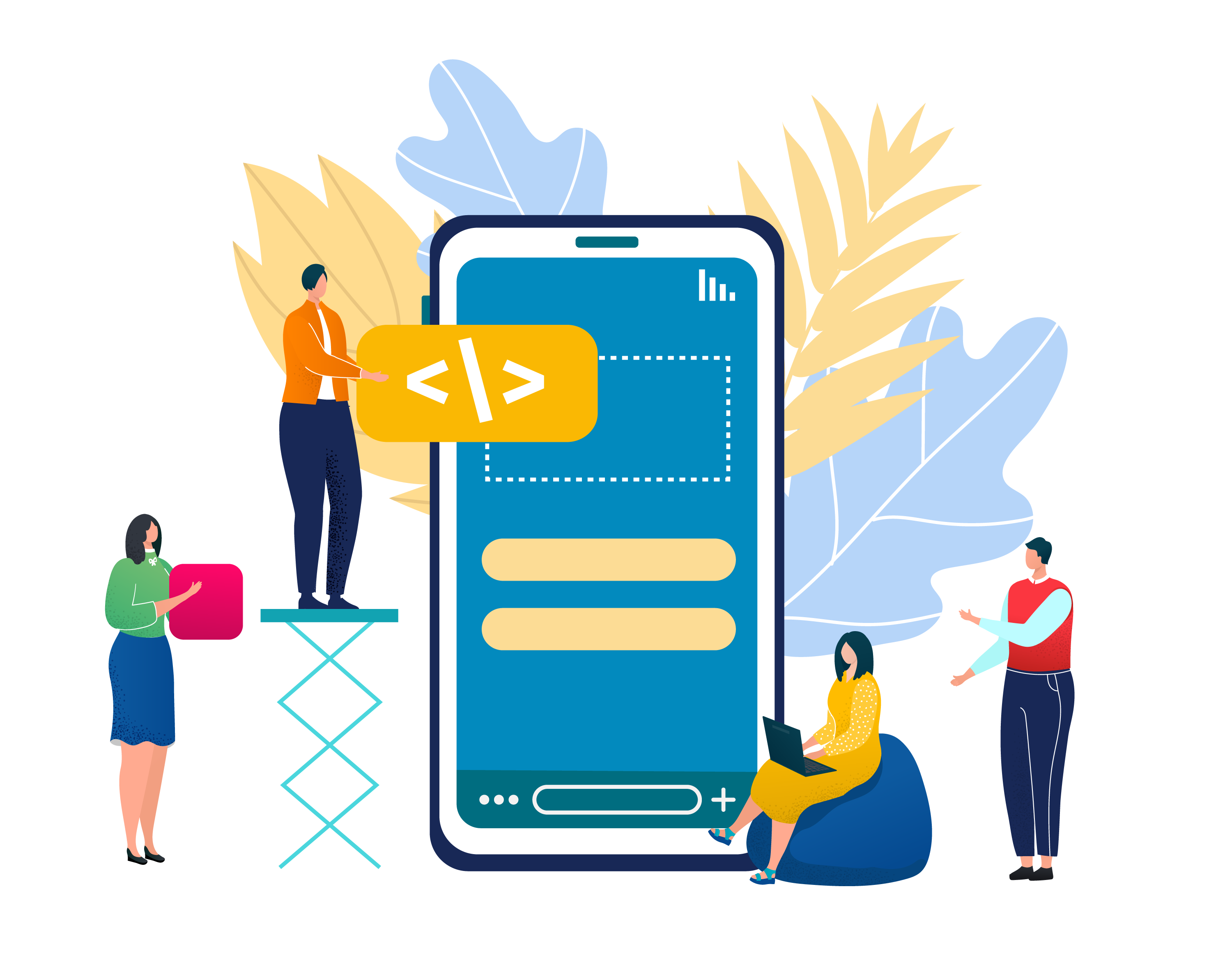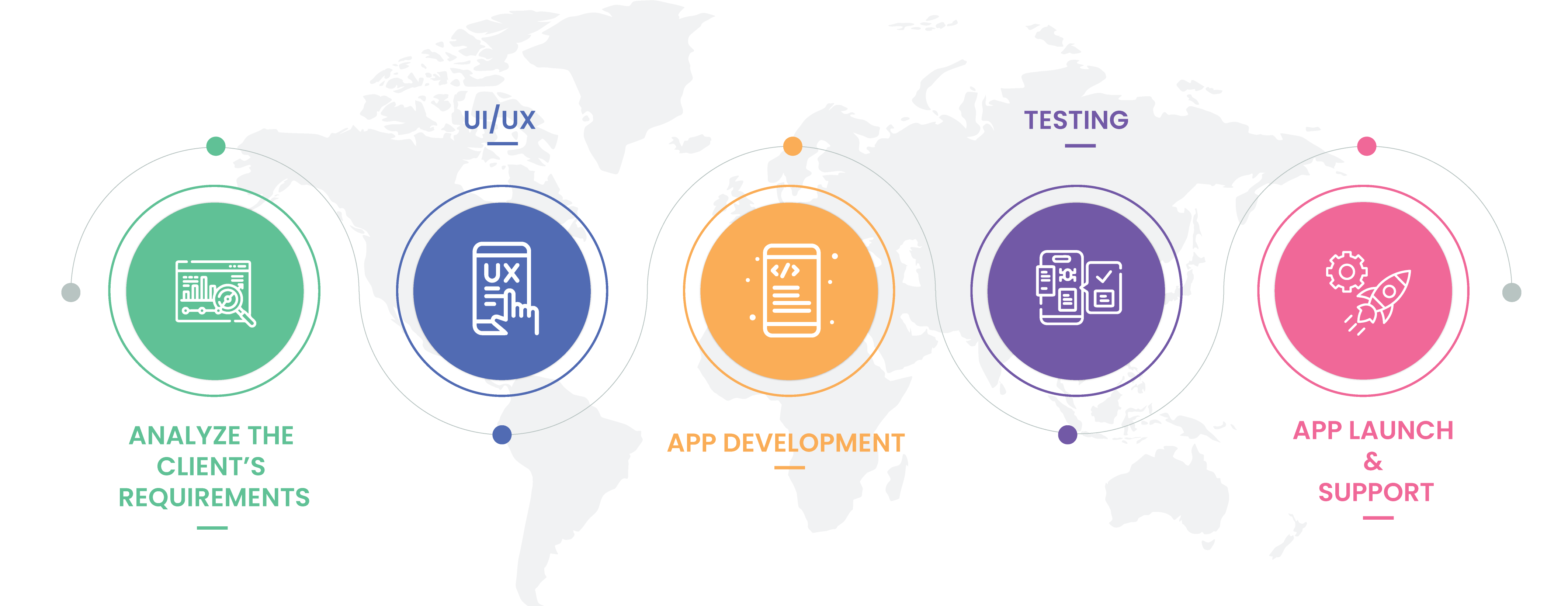Apps That Bring Life to Your Business
Leverage your business with apps we design for you. Maximizing the reach through captivating apps, invest into our mobile application development where we design, develop, and launch using the top-niche platforms, bringing excellence in every tap.
The team at LiSquare Tech are dedicated to delivering tailored innovative solutions based on your business needs that your customers love. The inclusive technologies such as React for front-end and Python at backend along with cloud advantage, we are here to build mobile apps that make you stand out.
Highly Scalable
Highly Scalable
Be it tailor-made or a business app, we craft the best suitable app that expands your business, scales along with fluctuating markets, and adapts to the latest tech stack.
Intuitive
Intuitive
Easy to adopt quickly as our apps enhance user-friendliness, lessening the learning curve. Our enriched and intuitive interfaces offer seamless navigation across the apps.
Delightful Experience
Delightful Experience
On top of user-friendliness, our apps are designed to elevate user experience, enabling quick resolutions with the help of chatbots.
Inspiring Interfaces
Inspiring Interfaces
Our team of experts create vibrant interfaces that make you stand while sticking to primary color codes your brand has.
Developing business apps that customers can’t wait to experience with seamless stack of technologies such as Kotlin, React Native, Swift, Python, Typescript, and more backed by awe-inspiring visuals and intuitive interfaces. Next-gen mobile application development that are optimized for speed, functionality, and superior performance.






Captivating Apps for Your Audience
Native Apps
By fully utilizing the user device’s capabilities, we are on our way to developing fast, highly responsive, and more interactive apps for both worlds – iOS and Android. Our expert professionals redesign or develop with an aim to create pitch-in-perfect native apps as your business demands.
Hybrid Apps
Adjoining the elements of native and web applications, we make your business stand at the forefront by making your app live on respective online stores, integrating into your users’ system, enhancing the dynamics of your business.
Web Apps
Go-live on the website to offer seamless intuitive and greater experience for your users as our team crafts web applications that redefine your growth trajectory you never imagined. Enable your customers to use your services whenever they need using elite web apps.
Progressive Web Apps
Leveraging the latest web technologies, these apps are designed and deployed on the web giving the benefits of lower development costs, push notifications to notify users about latest updates, sophisticated security, and ease of use. Let your business thrive through online apps you build with our expertise.

LEAD THE EDGE
Mobile App Development That Redefines User Experience
We take the privilege of mobile app development technologies, tools, and processes – where we follow the industry-led practices ensuring greater user experience. Unleashing the underlying performance and high throughput, our app development makes you stand out as our processes craft the best-size app that your business needs ensuring on-demand scalability. Be it customizing or tailoring as per your business needs, our mobile apps go beyond your expectations.
OUR DEVELOPMENT FRAMEWORK

Mobile Solutions
Mobile application development involves creating software applications specifically designed to run on mobile devices such as smartphones and tablets. It’s important for companies as it allows them to reach and engage with their customers on a platform they use frequently.
Companies can develop various types of mobile applications, including native apps (built for specific platforms like iOS or Android), hybrid apps (combining web and native elements), and progressive web apps (web-based apps with native-like features).
The mobile application development process typically involves planning, design, development, testing, deployment, and maintenance. Each stage is crucial for ensuring the success and functionality of the app.
Companies should consider factors such as their target audience demographics, market share of different mobile platforms, development costs, and desired app features when deciding which platforms to target (e.g., iOS, Android, or both).
Companies should consider factors such as the team’s experience and expertise, portfolio of previous projects, communication skills, development approach (Agile, Waterfall, etc.), and ability to meet deadlines and budget constraints.
Native app development involves building separate apps for each platform (iOS, Android), resulting in better performance and user experience but higher development costs. Hybrid app development uses a single codebase for multiple platforms, offering cost savings but potentially sacrificing performance.
Companies can achieve this by conducting thorough user research, gathering feedback during the development process, prioritizing usability and performance, and continuously iterating based on user feedback and testing.
Security considerations include secure data storage and transmission, encryption of sensitive information, protection against malware and unauthorized access, adherence to data privacy regulations, and regular security audits and updates.
Companies can monetize mobile apps through various strategies such as paid downloads, in-app purchases, subscription models, advertising (in-app ads), freemium models (free basic version with premium features available for purchase), and sponsorship/partnership opportunities.
Best practices include optimizing code and assets for faster load times, minimizing network requests, implementing caching mechanisms, reducing battery consumption, and testing performance across different devices and network conditions.
Companies should prioritize responsive design principles, use adaptive layouts and scalable assets, test the app on various devices and screen resolutions, and leverage platform-specific features and guidelines for optimal user experience.
UI/UX design is crucial for creating intuitive, visually appealing interfaces that engage users and provide seamless navigation and interaction. It helps enhance user satisfaction, retention, and overall app success.
Common challenges include defining clear project requirements, managing scope creep, balancing design and development priorities, addressing platform-specific limitations, ensuring cross-platform compatibility, and securing funding and resources.
Companies should familiarize themselves with the guidelines and policies of app stores such as the Apple App Store and Google Play Store, adhere to their submission requirements, and conduct thorough testing to ensure compliance before submitting the app for review.
Strategies include app store optimization (ASO), social media marketing, influencer partnerships, email marketing, content marketing, search engine optimization (SEO), paid advertising (e.g., app install campaigns), and referral programs.
Key metrics include app downloads and installations, active users (daily, weekly, monthly), user engagement (session duration, retention rate), in-app purchases and revenue, app store ratings and reviews, and customer satisfaction scores.
Companies should release updates regularly to fix bugs, add new features, improve performance, and address user feedback. The frequency of updates depends on factors such as user needs, market trends, and the complexity of changes.
Analytics provide valuable insights into user behavior, preferences, and interactions with the app, helping companies make data-driven decisions, identify areas for improvement, optimize marketing strategies, and measure the effectiveness of app features and campaigns.
Companies should stay informed about industry trends and user preferences, monitor competitor strategies, solicit feedback from users, prioritize innovation and continuous improvement, and invest in ongoing app maintenance and updates.
Resources include online courses and tutorials, developer documentation and forums, industry conferences and events, mobile app development communities, and professional associations and networks specific to mobile app development.









